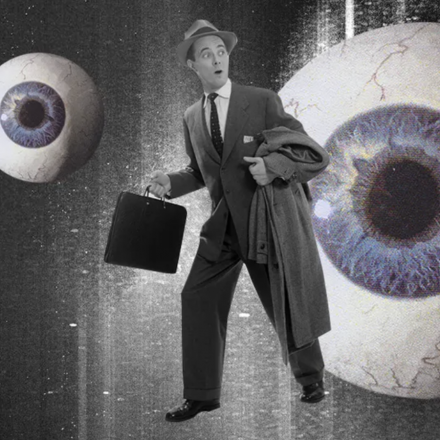Movie and TV credits should include a disclaimer: "Any resemblance to real life is purely coincidental" and "Do not try this at home." Because sometimes, they show astonishing nonsense.
Chloroform Doesn’t Knock People Out for Long
Stories of criminals neutralizing victims with chloroform have existed as long as the tradition of using this substance in medicine. In reality, there is no documented evidence of chloroform being used to incapacitate someone. And do you know why? Because it doesn’t work that way! For chloroform to take effect, its vapors need to be inhaled for at least five minutes, and when your hypothetical victim loses consciousness, it doesn’t mean you can just tie them up, throw them in the trunk, and forget about them for a few hours. First, to keep chloroform’s effects going, it has to be continuously inhaled. Second, you’ll need to ensure the person’s tongue doesn’t fall back and block their airway, which means you’ll need to keep their chin elevated at all times. And by the way, movies don’t show this, but inhaling chloroform often causes vomiting. In short, dealing with chloroform is a hassle!
Police Cannot Trace a Call Instantly
In movies, police often have to engage in long conversations with criminals (“Hang up!” — “No, you hang up first!”) to determine their location. In reality, locating a caller is possible if GPS is enabled on their phone (but even without it, it can still be done). However, triangulation takes about half an hour, and the location of the phone relative to cell towers will be quite approximate.
The Effectiveness of Torture Is Overrated
As movies teach us, if you need to get information, the most reliable method is to torture someone until they recall all the details and facts you want. In reality, it’s not the case. Not to mention that torturing people is unethical (and physically exhausting), it often results in the opposite of what you want. To avoid physical pain, a person will say whatever you want to hear. So, later on, you’ll have to guess whether they told the truth or just because you threatened them with Stas Mikhailov’s discography.
You Shouldn’t Inject Medicine Directly into the Heart
With all due respect to Quentin Tarantino, we don’t recommend trying the feat of the "Pulp Fiction" character, even if you encounter a motionless Uma Thurman and an adrenaline syringe. Although such injections exist, there are other, less risky methods. For example, intravenous injection. Blood circulates through your body in a minute, so a more reliable way to deliver medicine to the heart is hard to imagine (and it’s better not to try!). Also, injecting medicine directly into the heart risks puncturing a lung and leaving a hole in the heart itself, which, as you might guess, is not ideal.
Forensic Science Can’t Answer Every Question
If you’ve ever watched shows like "Law & Order" or any other series made in the last three decades, you’ve seen the crucial role forensic science plays. But in practice, while it provides many facts that help investigations, it doesn’t solve crimes on its own. Crime scenes are usually littered with DNA material, not only from the perpetrators but also from random bystanders. Even if the police find DNA that definitely belongs to a suspect, finding the owner isn’t straightforward. Even if samples are in the police database, processing, preparing, and writing reports will take at least a month.
A Defibrillator Can’t Restart a Stopped Heart
In Hollywood films, to revive someone with a stopped heart, it’s enough to shout “We’re losing him!” and apply a defibrillator to their chest (not your own). In reality, this won’t work. If the heart has stopped beating, a defibrillator will only end up burning it. However, don’t be too disillusioned with defibrillators; they are very useful when the heart rhythm is erratic and the ventricles start to beat simultaneously. A defibrillator helps “reset the system.”
You Don’t Have to Wait to Report a Missing Person
In movies and TV shows, the police often claim that you must wait 24 hours after someone goes missing before they will start looking for them. In reality, you don’t need to wait to file a report. The only condition is that you must be a close relative of the missing person. When it comes to missing persons, the first 24 hours are often the most crucial, especially if it involves children. Of course, if an adult goes missing and there’s no reason to believe they are in danger, the police are not obligated to take urgent action. So, if your date is half an hour late, calling the precinct won’t help.
Faking Insanity Is Not a Great Way to Avoid Punishment
In movies about maniacs and serial killers, almost every second person manages to avoid punishment for their crimes by cleverly pretending to be insane. (Otherwise, we wouldn’t have so many movies about maniacs and serial killers.) In reality, it doesn’t work that way. Lawyers use this defense in less than 1% of cases, and only a quarter of these cases result in acquittals. To be precise, the acquittals are very conditional, as the person deemed insane is sent to mandatory treatment and ends up spending as much time in a psychiatric facility as they would in prison, if not more. Even if they are released and found not dangerous to society, they will be monitored and undergo regular evaluations.
Silencers Are Not That Silent!
In reality, silencers are primarily designed for the shooter’s comfort, not to make the shot completely silent. Because that’s impossible. Yes, of course, a pistol with a silencer is quieter than one without, but it’s not silent.
A Drowning Person Doesn’t Make Much Noise
In movies, drowning people usually loudly call for help and wave their arms. In real life, things don’t have such special effects. In fact, a person can’t scream because they need the air in their lungs for breathing, and the time spent above water is not enough to exhale, inhale, and call for help. They use their hands to keep themselves afloat. Moreover, all movements of a drowning person are instinctive, and they are incapable of purposeful actions—such as swimming towards the shore or grabbing onto something.


















